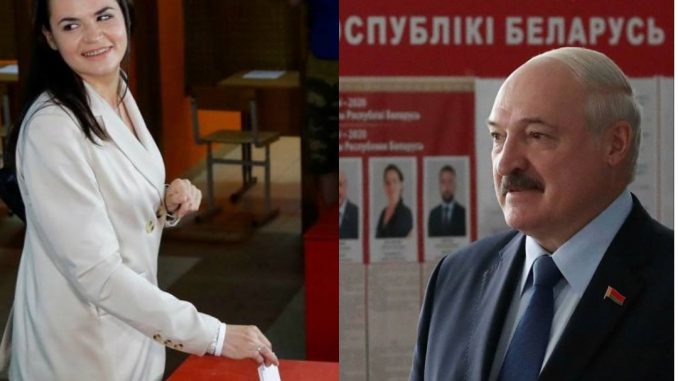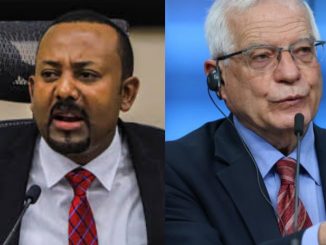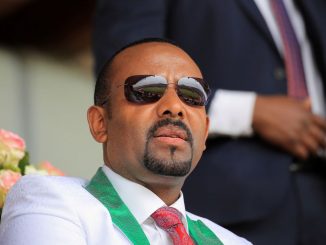
Protest broke out on Monday, as preliminary results showed that incumbent Belarusian President Alexander Lukashenko won the presidential elections, the country’s central election commission said.
Lukashenko won a sixth term with 80.23 per cent of the vote, while opposition candidate, Svetlana Tikhanovskaya, his main rival, won nearly 9.9 per cent, according to preliminary results.
Alexander Lukashenko has served as Belarus’ president since the establishment of the office in 1994. His reelection has sparked protests throughout the country, with opponents saying the vote was rigged.
Belarusian leader Alexander Lukashenko has won a sixth term as president with 80% of the vote, according to preliminary results cited by the Central Election Commission Monday.
Svetlana Tikhanouskaya, a 37-year-old former English teacher who emerged as Lukashenko’s chief opponent, won 9.9% of the vote, the election commission said. The other three candidates received less than 2% of the vote. Turnout for the election was put at 84%.
Mass protests erupted in cities across the country, including the capital Minsk, after official exit polls showed Lukashenko was on course for reelection. The president’s opponents have claimed that the election result was rigged in his favor.
Protests erupt in Belarus after claims of rigged election
Some 5,000 protesters in Minsk took to the streets to protest Lukashenko’s election win, clashing with police into the early hours of Monday morning. Officers used stun and flash grenades to break up the demonstrations, according to DW correspondents in Minsk .
At least one person has been killed and dozens injured in the clashes between police and protesters, while 120 people have been detained nationwide, according to the Viasna human rights group.
ALSO READ: Hong Kong media tycoon Jimmy Lai, son arrested under national security law, risk life jail term
DW’s Moscow correspondent Emily Sherwin said it was “very rare for people to protest in Belarus at all.” Usually protesters immediately get arrested, she said and “we’ve been seeing up to 60,000 people gathering in support of Svetlana Tikhanovskaya so in a sense that really doesn’t add up with the numbers that we’ve now seen in the poll.”
‘Fake’ election
In response to initial exit polls on Sunday, Tikhanouskaya said she did not trust the official figures, insisting “the majority is with us.”
Manuel Sarrazin, a member of German parliament’s foreign affairs committee, told DW that it’s clear that the election was “fake.”
“It’s quite obvious that, for the past 25 years, we haven’t seen free and fair elections in Belarus at all,” Sarrazin said. “But I think no election has been as fake as this one.”
This year’s presidential election did not have any independent election observers present as the Organization for Security and Cooperation in Europe (OSCE), which observes elections on the continent, was not invited.
European strongman
Lukashenko has been in office since Belarus established the role in 1994 — three years after declaring independence from the Soviet Union. He’s the longest-serving president in Europe, and EU media have referred to him as “Europe’s last dictator.”
The longtime president has often advocated for closer ties with Russia, which has reflected in his largely successful economic policies. But there have been several disputes with Russia over energy shipments in recent years, and Lukashenko has accused Moscow of interfering with elections, including the one on Sunday.
Opposition parties have fought for years to unseat Lukashenko, and couldn’t agree on a candidate to support in this year’s election. But a recent rise in anti-government protests opened the possibility for the end of the Belarusian strongman’s reign.
Tikhanouskaya emerged as the top candidates to upset Lukashenko, with her rallies drawing tens of thousands. She decided to run after her husband, imprisoned blogger and activist Sergei Tikhanovsky, was barred from doing so.
DW (AFP, dpa, Reuters)




